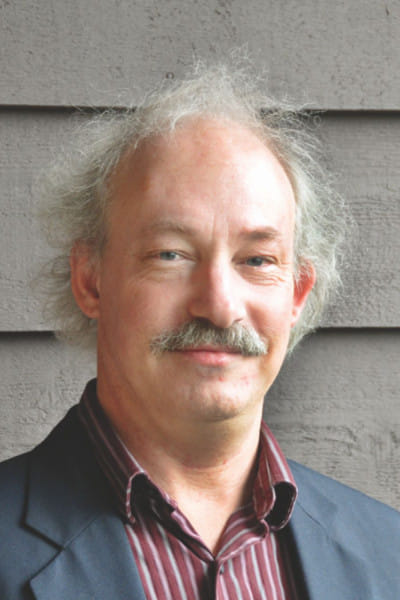International law requires states to ban hate speech: Toby Mendel

The Daily Star (TDS): How do you regulate the internet without impinging on people's right to freedom of expression?
Toby Mendel (TM): It's important to distinguish two different kinds of internet regulation. The first is what I would call structural regulation: regulation of the internet as a medium of expression, like States impose licensing requirements on broadcasters. The second is content regulation, or limitations on what may be disseminated over the internet, which we also see imposed on every other form of expression, such as writing a book, publishing a newspaper, etc.
When it comes to structural regulation, international standards suggest that the internet should be subject to only the most light-touch regulation. The more intrusive kinds of regulation that are considered to be legitimate for broadcasters, for example, should not be imposed on the internet. Many countries impose some kind of regulation in terms of licensing providers of access to the internet (such as telecoms and cable companies). These entities either use the airwaves or distribute via physical cables and in both cases this justifies some sort of regulation. But going beyond that is not considered to be legitimate.
When it comes to content regulation, the default rule is that legitimate restrictions that apply to offline expression can also be applied to online expression, e.g. child pornography is a crime both offline and online. There are, however, a couple of areas where special regimes are needed to protect freedom of expression on the internet. For example, if you publish something alleged to be defamatory, the traditional rule is that everyone involved in the dissemination of the publication is responsible for it. Better practice, however, is to insulate internet intermediaries from liability because otherwise they will simply take material down as soon as someone complains, without considering whether it really is illegal. On the other hand, some countries have recognised the need for special content restrictions for some kinds of internet activities, such as spamming, cyber bullying and hacking into others' computers.
TDS: All over the world, national security is being used as justification for invasion of privacy (e.g. PRISM in the US, SORM in Russia). What are the global implications of this for people's right to free speech?
TM: The implications are very serious. Everybody has legitimate concerns about agencies engaging in expansive surveillance, whether they are being watched, or whether they are concerned that false or mistaken information is being collected about them. This is a serious threat to people's right to privacy.
What's being gathered is meta-data about communications. So these agencies do not normally listen to actual conversations and instead monitor the identities and locations of the people in the conversation, the duration of calls, etc.
TDS: Do you think it's problematic that people may be less aware of the rights they have than the ones they do not have in the online space?
TM: The media, along with NGOs and civil society, has a huge responsibility to publicise the Right to Information Act (RTIA), which empowers citizens to monitor the work of government officials and public authorities.
The overall use of the RTIA has been very low in contrast to India and many other countries. Demand side is important for the successful implementation of such laws. Without demand, officials are unlikely to go to great lengths to provide information.
TDS: Legal and industry experts in Bangladesh have voiced concerns about the draft of the Cyber Security Act which would allow arrest of suspects without warrants for committing "cyber terrorism." Experts are saying this is another way to further control social networks and the blogosphere.
TM: I haven't seen a copy of the draft in English. But certainly, arrest without warrant is problematic and very difficult to justify under international law. In most countries, there's a need for very limited, dedicated legal provisions restricting what is legal online as well, as I mentioned, for ensuring that things which are crimes offline, like offences of terrorism, also apply in the online space. The ICT Act already goes too far in terms of restricting content so it doesn't sound like the draft of the Cyber Security Act is necessary.
TDS: Where do you draw the line between free speech and hate speech?
TM: International law has a clear definition of hate speech which is found in Article 20, paragraph 2 of the International Covenant on Civil and Political Rights. Bangladesh has ratified this so she is legally bound to respect it. International law requires states to ban hate speech, defined as advocacy of hatred that incites hostility, violence or discrimination against a group based on race, religion, nationality, and so on.
Drawing the line between hate speech and free speech is difficult and it depends on the circumstances. Context is very important. In a situation where there's already a lot of hatred and discrimination against a certain group, hostile speech can have a much greater impact than in a context characterised by more tolerance. But it is important to note that hatred, as understood by international law, is a very strong emotion. It doesn't include a mere general dislike or prejudice; it's when a particular group is so strongly disliked that others do not want it in society and it cannot develop equally along with others.

 For all latest news, follow The Daily Star's Google News channel.
For all latest news, follow The Daily Star's Google News channel. 



Comments